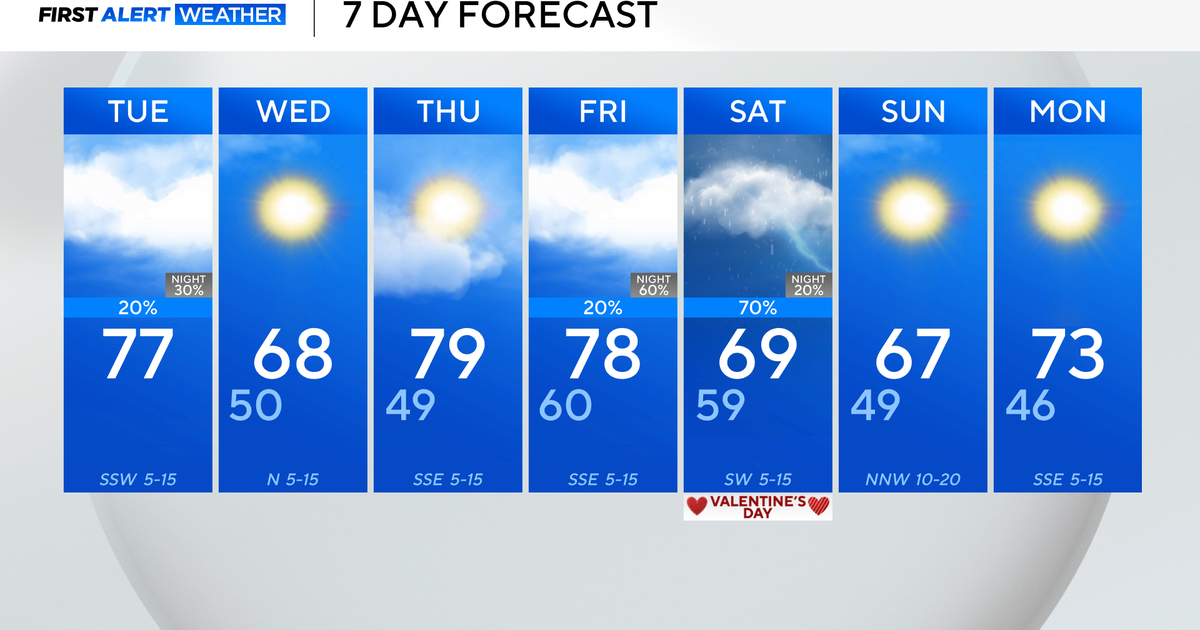More mosquito samples test positive for West Nile in North Texas
NORTH TEXAS — Dallas County Health and Human Services confirmed this week five new mosquito samples tested positive for West Nile Virus. The samples were collected in Mesquite and Irving.
Tarrant County found signs of the disease in mosquitoes in Arlington last month.
With all the recent rain, experts say it's more critical than ever for families to guard themselves against the insects.
"When you have heavy rainfall, you're going to have more mosquitoes," said Shelley Stonecipher, a zoonotic disease expert and adjust assistant professor at UNT Health Science Center. "More mosquitoes means more risk of being exposed to mosquito bites, and subsequently West Nile Virus."
Stonecipher studies infectious diseases that spread between animals and people. She's concerned about what we could potentially see in North Texas this year.
"Each of us has a job to do to prevent mosquitos from breeding in and around our home for our own family and for the neighborhood and the larger community," said Stonecipher.
Most people who get infected with West Nile don't have symptoms, but it can be serious – and even deadly – for the elderly or people who are immunocompromised.
Last year, there were more than 20 human cases of West Nile disease and two deaths in Dallas County. Tarrant County reported 12 cases of infection in people.
Common symptoms are fever, headache, body aches, and rash.
"Please take it seriously," said Stonecipher. "Wear repellent and reduce mosquito breeding sites in and around your home."
Cities and local health departments are urging people to go around their properties right now and dump out anything with standing water, get rid of old tires and tarps, and clean your gutters.
"It only takes a bottle cap full of standing water for mosquitoes to lay their larvae that hatch into adult mosquitoes," said Jordan Balusek, the consumer health supervisor with the City of Fort Worth.
The city's mosquito surveillance team targets treatments for areas with standing water where mosquitoes breed. All the recent rainfall in North Texas has left water everywhere.
"A lot of standing water complaints," Balusek said.
Teams also set up more than 50 traps around the city every week to then collect and test the insects for diseases like West Nile, so they know where to spray.
"It's really important we set these traps because West Nile can be a deadly virus," Balusek said. "It's rare, but we take it seriously."
Fort Worth typically sees a spike in positive West Nile mosquito samples starting at the end of June.
"It will pick up through July, August and then September, October you'll see it trail off," said Balusek.
She recommends keeping that insect repellent handy from now through the fall.
The city also advises people to take the following steps to protect themselves and their families:
- Dump standing water in and around your home by emptying and scrubbing all outdoor containers such as pools, toys, planters, birdbaths and trash containers.
- Tightly cover water storage containers such as buckets, cisterns and rain barrels so that mosquitoes cannot get inside to lay eggs.
- Clean out gutters to avoid standing water. Examine gutters for damage that would cause water to collect.
- Inspect your yard after every rainfall and empty any containers or areas where water has collected. Also, watch for puddles where condensation gathers from the AC unit.
- Use screens on windows and doors and repair holes in the screens.
- Apply insect repellent anytime you're outside. Use insect repellent with one of these active ingredients: DEET, Picaridin or oil of lemon/eucalyptus or other EPA-approved repellents.







